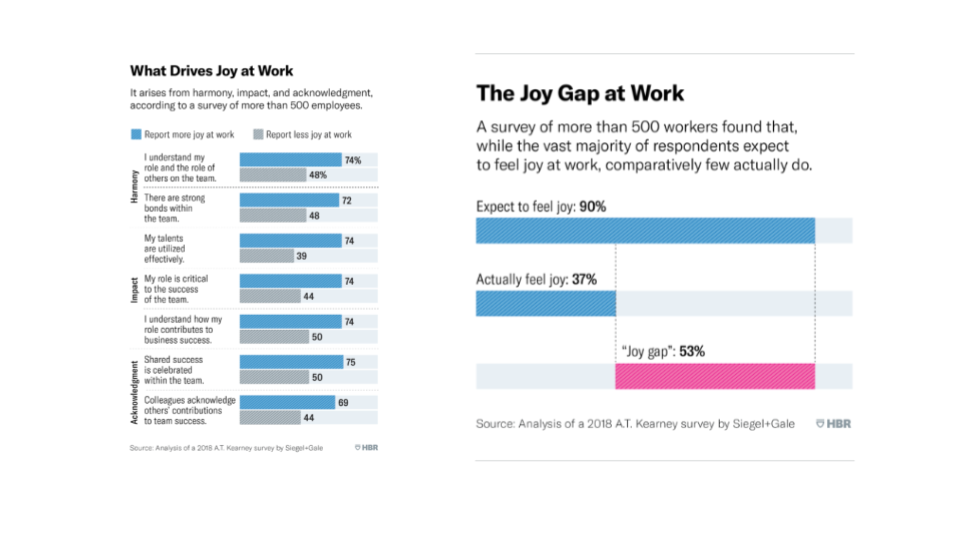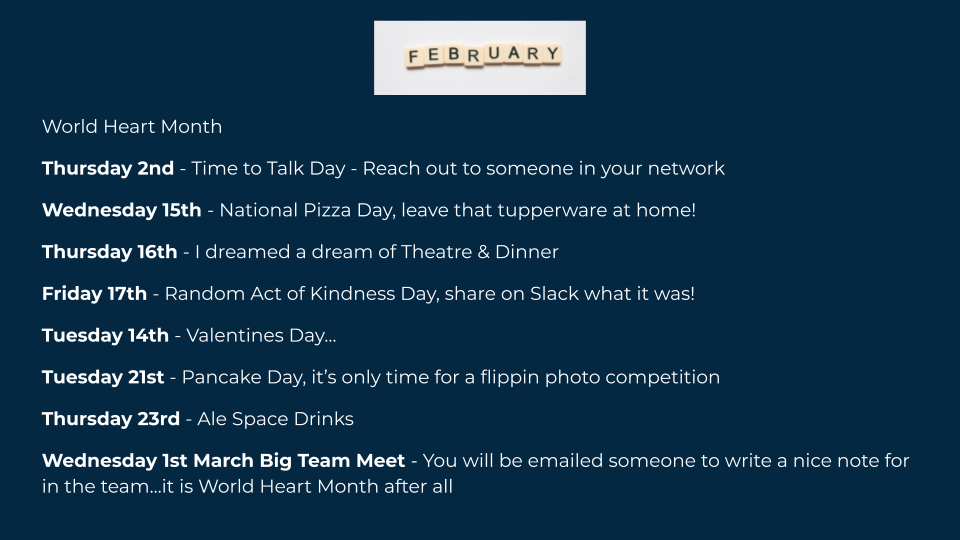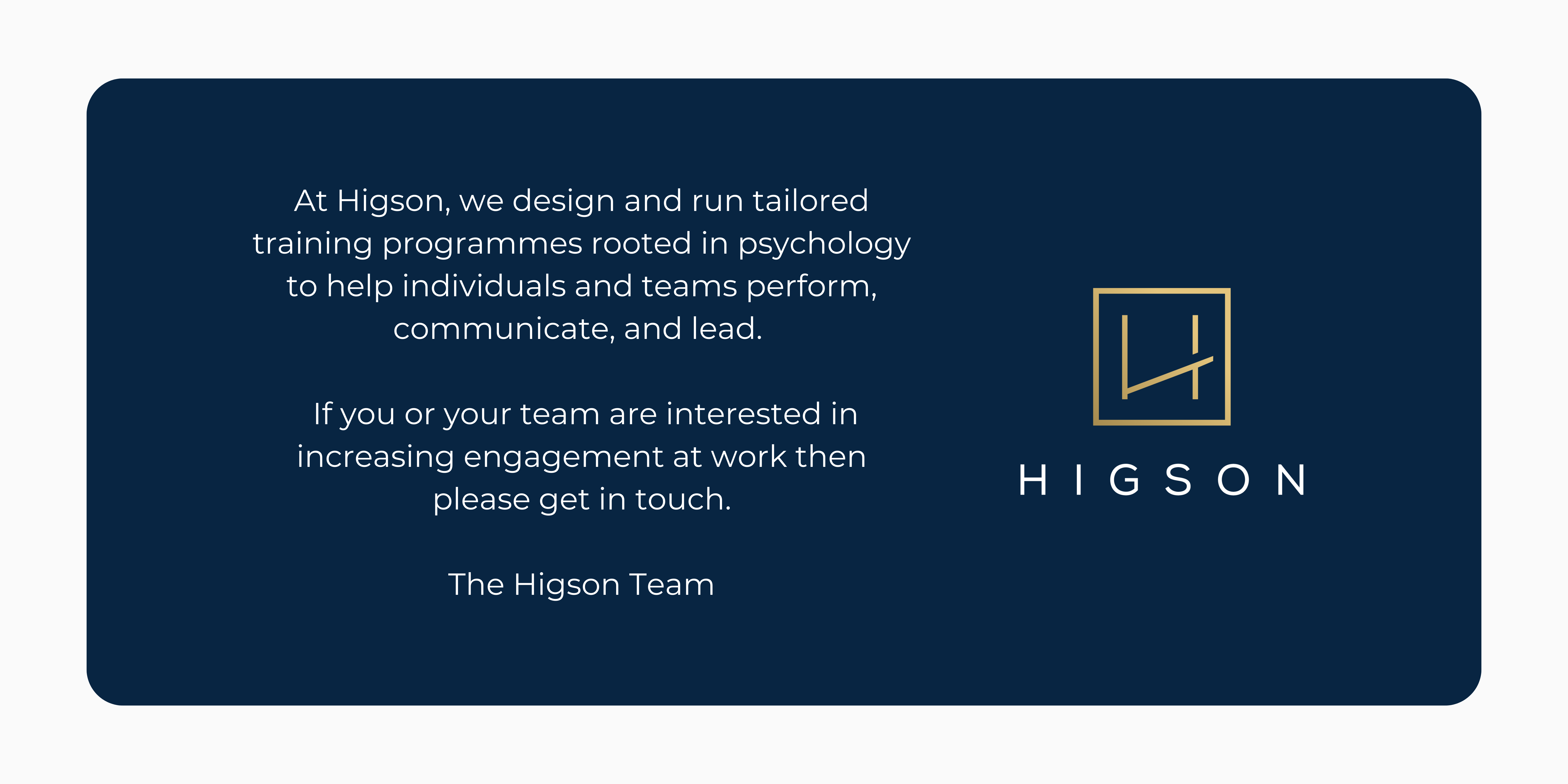19th February, 2020 • 3 min

Written by Em Roberts
19th September, 2023 •

The definition of fun: Joy, amusement or light hearted pleasure
Do you have fun at work? Or are you cringing at the thought of work ‘fun’? We have all had those utterly uncomfortable experiences where we are forced into telling someone that we’ve just met the most interesting fact about ourselves. Painful, right? Well, it doesn’t need to be. Read on to find out how to encourage authentic, real workplace fun.
Why is it so important to have fun at work?
When we are having fun in a relaxed way our body’s serotonin levels naturally increase, meaning that our ability to make meaningful connections is catalysed. Think about a burning ember that then has a drop of fun-fueled petrol dropped on it – the sparks fly.
There are many reasons why having fun is beneficial to the workplace. To pull out 3 key themes: .
1.Engagement
Having fun in a team builds trust and encourages open communication. This means that teams are more likely to openly give and receive honest feedback , push back and challenge each other in a healthy way, and create an inclusive culture where everyone can bring their full selves to work.
6.9 UK business days are lost per year to absence. Making more fun at work means that employees are happier and healthier, the perfect recipe.
Having fun > Healthier employees > Increased engagement
2. Impact and resilience
Team members that have a good relationship with each other at work, are more than coworkers, will work better together and communicate more effectively. A 2015 study by Warwickshire Centre for Competitive Advantage in Global Economy found that happier employees are on average 12% more productive. The impact of creating a fun workplace where people want to be is increased retention and reduced turnover, as well as more success.
Reduced Turnover + success = Increased Retention
3. Creativity
‘We don’t stop playing because we grow old, we grow old because we stop playing.’
George Bernard Shaw
When was the last time you engaged in play? At some point, without realising, we played consistently for the last time. No more swings, slides or merry go rides. But play is so important to incorporate into our work because it breeds creativity and helps us work more effectively. Our ability to learn improves, and our imagination is stimulated helping us to adapt and problem solve.
The Joy Gap

Joy is an emotional aspect of work that organisations have heavily invested in over the last few years. But is this investment going far enough?

The Joy gap refers to the difference between people who expect to feel joy at work, and those who actually do.
As shown in the study below it is a good idea to measure whether you have a joy gap in your organisation. We recommend incorporating this in your team’s engagement/pulse survey. For example, “How likely are you to recommend our company as a workplace” and “I feel a part of the company’s success.” From this you can determine if you are going far enough to invest in and encourage the joy of your team, and set actions accordingly.
How to have more fun at work
2 angles: individual and team
Think of a football team. They work individually and collectively as a team. They also celebrate individually, running to the home stand, and collectively, jumping on the goal scorer. The crowd reflects this joy and participates in the celebration as if it was their own foot that thumped the ball to the back of the net. If we approach fun in the same way as a football match, we can bring everyone along for the ride.
Individual
As an individual you can think about how to inject a little more fun in your daily tasks.
1. Make day to day work more like a “game” – gamifying your to-do list – break up tasks and time yourself, what would you like to reward yourself with? A walk, cookie, or 5 minute chat with your best work buddy?
2. Create more opportunities for collaboration- Set up brainstorming stations around a room with sticky notes and everyone has 2 minutes to write down all their ideas before presenting back to the group
3. Mix up the small talk at the start of meetings – we recommend the prompts in the School of Cards conversation pack. A couple of example questions are,
‘The best person I ever worked with was so good because…’
‘If life were 400 years long, what careers would you want to have had?’
Team
1. Celebrating successes – share recognition in the way that individuals in your team like to be recognised, we all have different ways in which we feel valued; you could consider giving gifts, time, extra responsibility or words of affirmation by shouting individuals out on your social channels and in meetings
2. Regular touchpoints in working rhythm to incorporate fun- Team meetings, for example, have a photo competition of the most interesting thing everyone has seen out and about. 1:1’s, and simple messages
3. Have you got a fun and wellbeing calendar? If not, why not introduce this to your team with monthly activities to look forward to. Have a real mix so that everyone’s idea of fun is met, from theatre trips to sports days and talks.
What Higson does to build in fun

We believe that having fun makes for success. This is one of Higson’s core values and a behaviour we demonstrate as a team and in our client workshops. As head of fun and wellbeing at Higson I have built an annual fun and wellbeing calendar so that the team has micro and macro activities or team treats to look forward to. See the month of February as an example:
Three key takeaways
1. It is important to have fun in work to increase engagement, impact, resilience and creativity
2. Conduct a survey to discover if you have a joy gap and if everyone’s idea of fun is being had.
3. Approach your fun strategy through the lens of the individual and the team. Build a fun calendar and share it with the team for any additions and to get everyone excited for the year ahead.
If you would like to find out more about how you can inject a fun strategy into your workplace then get in touch.
